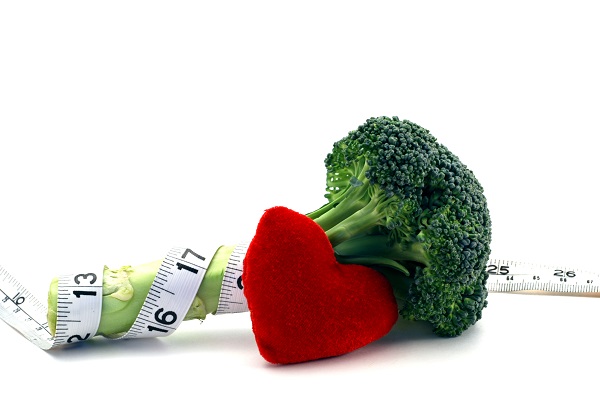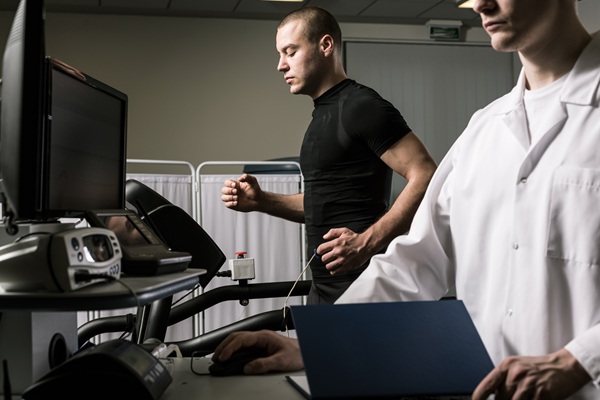Visit a Cardiologist for Cholesterol Management

High cholesterol is a common medical issue in the Western world, especially in the United States. Researchers estimate that about 71 million Americans have high cholesterol. Fortunately, cardiologists offer cholesterol management to prevent serious problems like heart attack and stroke. Often, this treatment will involve lifestyle changes, healthier eating, and medication.
Diagnosing high cholesterol
Unfortunately, there are no warning signs or symptoms of high cholesterol. This makes it difficult to tell whether one has a cholesterol problem without medical testing. A healthcare provider needs to order a blood test — a lipid panel — to check for low-density lipoprotein (LDL), high-density lipoprotein (HDL), and total cholesterol. This panel looks at triglycerides as well.
Medical professionals believe that LDL cholesterol is a bad type of cholesterol, as HDL cholesterol is not known to cause health problems. The total cholesterol level reveals how much LDL and HDL cholesterol are present in the body. HDL cholesterol can lower this number because it helps flush LDL cholesterol from the body through the liver. In contrast, LDL cholesterol and triglycerides can cause plaque buildup in the arteries (atherosclerosis) and block blood flow to the heart, legs, arms, and brain. As a result, some people may experience a heart attack or stroke.
Cholesterol management from a cardiologist
Determining the cause
A cardiologist can diagnose high cholesterol and provide treatment options. For cholesterol management to be effective, they will first consider what caused the patient's high cholesterol. Some common causes include the following:
- Frequent alcohol consumption
- Tobacco use
- Unhealthy diet
- Lack of exercise
- High-stress levels
- Genetics
- Diabetes
- Pregnancy
- Kidney disease
It is common for high cholesterol to be rooted in a combination of two or more of these factors. If this is the case, a cardiologist will customize the patient's treatment to address each of them. If another health condition, such as diabetes, is causing high cholesterol, the patient will also need to get treatment for that condition.
Lifestyle changes
The next step in cholesterol management will typically be getting more exercise, eating healthier, and making other lifestyle changes. Regular exercise and a healthy diet naturally lower cholesterol. The American Heart Association states that 150 minutes of moderate exercise per week may help achieve this goal. Brisk walking and biking are effective options. In terms of diet, the cardiologist recommends one low in saturated fats.
As previously mentioned, the cardiologist will customize treatment to the patient's needs. Patients with high-stress levels may need to learn how to manage stress. In addition, if the patient consumes too much alcohol or tobacco, the cardiologist will likely recommend that the patient cut back on or quit using these substances.
Medications
A cardiologist may prescribe medications to help lower cholesterol if lifestyle changes do not produce adequate results. These medications include cholesterol absorption inhibitors, statins, and bempedoic acid. Cholesterol medication blocks the absorption and production of cholesterol in the body, gradually lowering it.
The cardiologist will work to find the right medication for the patient's high cholesterol, taking their medical history, risk factors, and current condition into account. There may be some trial and error, so it is important to stay patient until the doctor finds the correct medication and dosage to reach the desired results.
Consult a cardiologist
If you or a loved one are struggling with high cholesterol, or suspect you might be, consult a cardiologist for help. They can help you prevent health problems with the right cholesterol management plan. Call our Boynton Beach office today to schedule an appointment.
Request an appointment here: https://boyntonbeach.floridapremiercardio.com or call Florida Premier Cardiology at (561) 229-1411 for an appointment in our Boynton Beach office.
Check out what others are saying about our services on Yelp: Cholesterol Management in Boynton Beach, FL.
Recent Posts
According to the Centers for Disease Control and Prevention, heart disease is the leading cause of death for adults in the United States. Therefore seeking chest pain treatment is crucial, especially for those at high risk for heart disease. However, chest pain can result from various health issues, so how does one know when it…
A cardiac stress test is a diagnostic tool to evaluate how well the heart performs under physical stress. Cardiologists use this test to detect underlying cardiovascular conditions, monitor treatment progress, or assess the risk of future heart complications. Cardiac stress tests are essential in the early detection and management of heart disease.A cardiac stress test…
Peripheral arterial disease affects blood flow in the arteries, most commonly in the legs. It develops due to plaque buildup in the arteries that causes them to narrow and restrict circulation, possibly leading to discomfort, difficulty walking, and other serious complications. Recognizing the symptoms early and exploring treatment options can help improve the quality of…
Receiving cardiovascular treatment is a critical step in managing heart health, but recovery and long-term are equally vital to ensure long-term wellness. Whether the treatment involves medication management, interventional procedures, or surgery, maintaining a relationship with the cardiologist and following their recovery guidelines is crucial. A structured follow-up plan allows patients to maintain the benefits…


